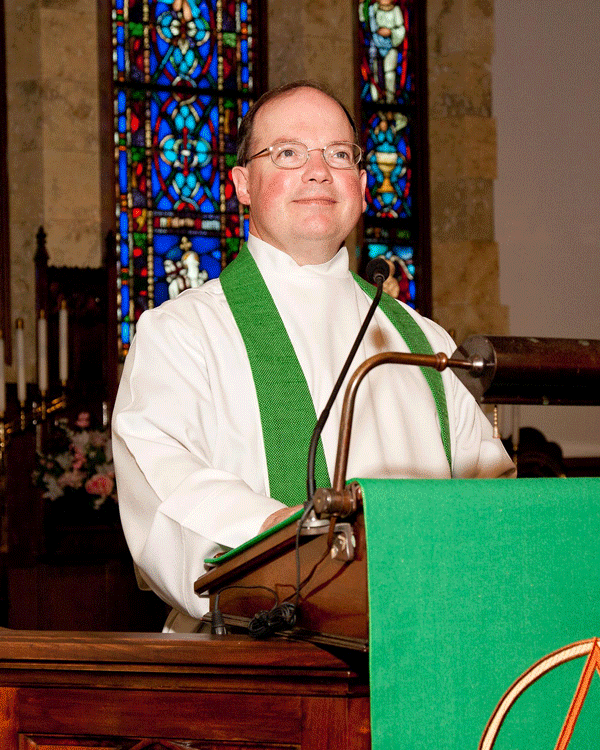|
|
Pastor's Page
|
|
Rev. Steven E. Thomas, Pastor Pastor Steven Thomas was born in Houston,
Texas. He graduated from New Mexico Tech with a BS in Chemistry. He was working
as a chemist in Baltimore for a few years, and then decided to pursue the dream
of being a pastor. In 1993, Pastor Steve graduated from the Lutheran
Theological Seminary in Gettysburg. Pastor
Steve enjoys hiking, kayaking, and reading. Pastor Steve’s passion is always
looking for greater understanding - especially in how our expanding scientific
knowledge reveals additional wonders of God. Some
of his favorite books are The Bible (of course), Awareness by
Anthony DeMello, One Minute Nonsense by Anthony DeMello, The
Power of Now by Eckhart Tolle, E=mc2 by David Bodanis,
and the Tolkein trilogy.
Sample Sermon
|
“BE STILL…” “Be still, and know that I am God!” (Psalm 46:10) The
psalmist speaks these words from God.
This advice from God. This
command from God. We have heard them -
and we know them. “Be still, and know
that I am God!” And
yet, how hard it is for us to be still.
We are always rushing to work.
Rushing to do laundry. Rushing to
the store. Even rushing to get home to
relax and watch our TV program. And yet,
what will give us life we find so hard to do:
Be still. When
I think of being still, it reminds me of the Sabbath command - that we should
take a day of rest to enjoy the day and worship and thank the Lord. And
yet, even with the command of God - we have such resistance to being
still. There is so much to do. In our multitasking world, there is twice as
much to do! And to stop and do
absolutely nothing seems like such a waste of time. And
yet, this is what God wants you to do.
To stop.... and appreciate God’s presence. To stop.... and appreciate your life. To stop.... and look around in wonder at the
vastness and intricacies of God’s creation.
To stop.... and realize that this moment and every moment is God’s. To stop.... and realize that God even created
the time into which you have been placed.
To stop.... and realize that you will not live forever (at least in this
life). To stop.... and realize that it
is God who is eternal and lasting. And
you participate in that eternity only by God’s gracious will. Watch
the clouds float by. Hear the wind
blowing through the trees - the chirp of birds or of crickets. The stillness of the walls. The rise of steam from your coffee cup. The beauty of a scene... the wonder and beauty of music. The beating of your heart. “Be
still, and know that I am God!”..... And
after you have done this.... you may
return to your work, you may return to your busy-ness. But with more depth, more understanding, and
greater appreciation. This
day is a passing wind.... And you are
flowing in it. Rejoice! Enjoy!
Love! And Live! Not in selfishness, but in gratitude.... Because even the wind is God’s. - Pastor Steve |
Pastor Messages of Special Interest
Suicide - Surviving Life’s Darkest Moments
|
Video of Archived Sermons Click here to View Video of Archived Sermons on You Tube
|
|
|

|
| © stbart-hanoverpa.org | | 1204 Grand Valley Road | Hanover, PA | 17331 | (717) 632-1952 |

